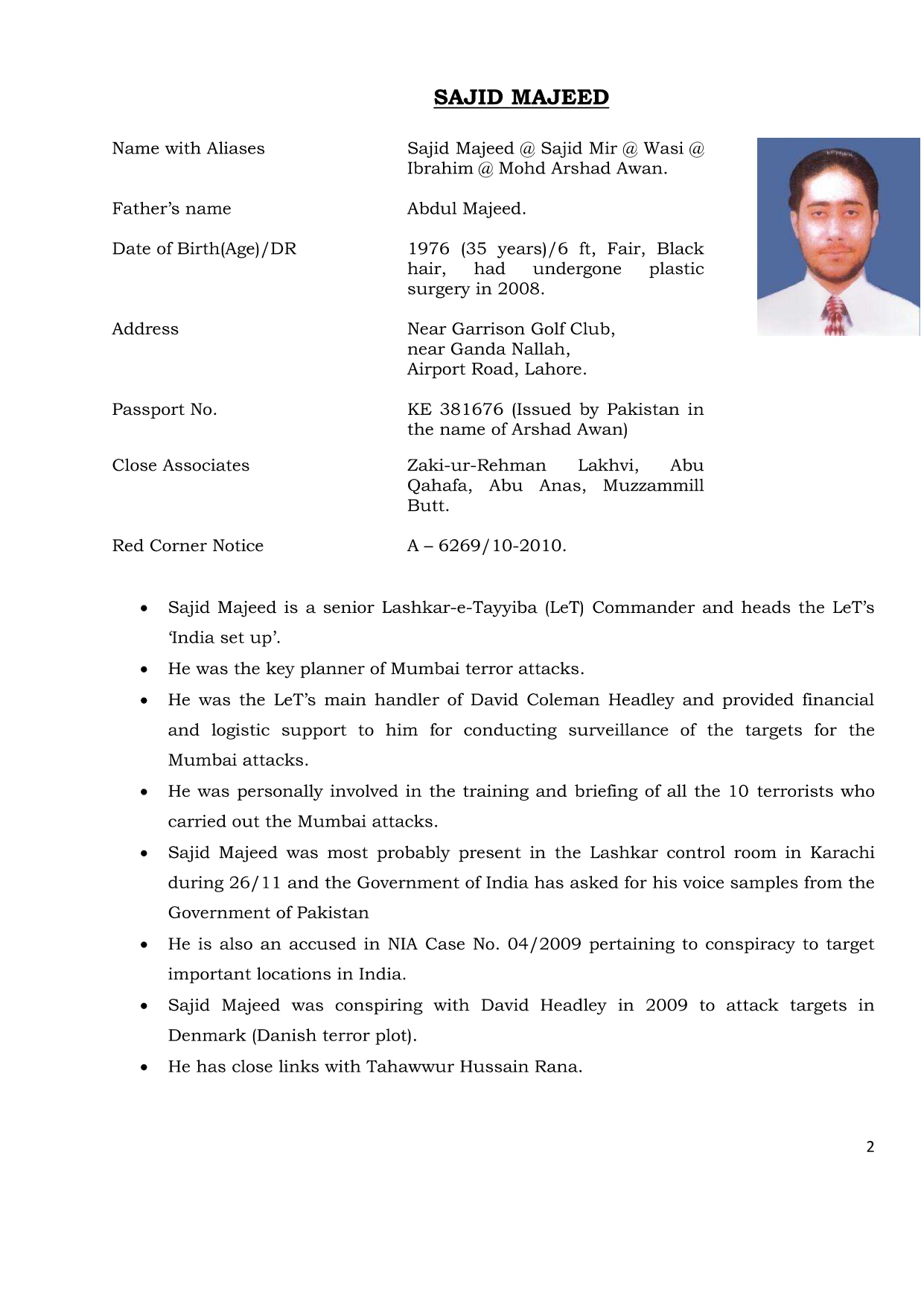Sajid Mir is a former Pak Army officer.
New Delhi: Lashkar-e-Tayyaba terrorist and former Pakistan Army officer Sajid Mir, who was sentenced to 15 years in prison on 16 May, will be joining a long list of infamous terrorists who have been sentenced to prison but are getting home like treatment while under arrest in Pakistan. Other terrorists who have received similar treatment include Lashkar chief Hafiz Saeed, Mumbai attack planner Zaki ur Rehman Lakhvi, Lashkar deputy chief Abdul Rehman Makki, its media head Yahya Mujahid and Ahmed Omar Saeed Sheikh, who killed Wall Street Journal reporter, Daniel Pearl.
Mir was sentenced to prison by an Anti-Terrorism Court in Lahore in May 2022, after he was shown to be arrested in April, just two months before the FATF (Financial Action Task Force) plenary at Berlin that started from 14 June.
The said conviction of Mir was included in the dossier that the Pakistani team submitted to FATF before the plenary began. This “achievement” played an important role in FATF arriving at a positive result for Pakistan. The FATF, in its findings, stated, “In particular, Pakistan demonstrated that TF (Terrorism funding) investigations and prosecutions target senior leaders and commanders of UN designated terrorist groups and that there is a positive upwards trend in the number of ML (Money laundering) investigations and prosecutions being pursued in Pakistan, in line with Pakistan’s risk profile.” Once the FATF conducts an on-site visit to verify the claims made by Pakistan, it will start the process to remove it from the grey list later in the year.
Mir, official sources told The Sunday Guardian, has not been sentenced for the important role he played in the 26/11 Mumbai attack, but for indulging in “terror financing”.
A former member of a Pakistan-based terror group told The Sunday Guardian that Mir’s whereabouts were always known to the Pakistan military establishment post the 26/11 attack and that he could always be reached by those who knew him. “He never went underground or disappeared. He would move around Lahore, Islamabad like any other former Pakistan Army officer,” the member said. According to him, Mir was an active member of the Pakistan military till the early 2000.
Apart from being wanted in India, Mir was designated a terrorist by France and the United States. He was on the FBI’s “Ten Most Wanted Fugitives” list. The French too found ample evidence to conclude that Mir was a part of the Pakistan Army establishment.
Mir became a subject of investigation by the French authorities for his role as the handler of French Muslim convert Willie Brigitte, who was asked to blow up Sydney’s power grid in 2003. Brigitte, who was born in the French Caribbean island of Guadeloupe, was deported from Australia to France in October 2003.
The investigations in the case were led by France’s top anti-terrorism judge, Jean-Louis Bruguiere, whose three years’ pain staking investigation brought Mir on the world stage for the first time. Mir was sentenced to 10 years in prison in absentia in 2007 after Bruguiere issued an arrest warrant against him in October 2006 that was circulated worldwide by Interpol and also sent to Pakistan.
Bruguiere in his findings had said that Mir was among the most influential terrorists of the time and a man who was leading terrorist operations on four continents. The French officials had found that Mir was a Major rank officer in Pakistan’s Directorate of Inter-Services Intelligence (ISI).
This was also confirmed by Brigitte, who spent months at the Lashkar headquarters in Muridke outside Lahore and grew close to Mir.
As per his testimony, Mir was also known as Abu Bara (Father of Bara), Uncle Bill and Sajid Bill and was always accompanied by two bodyguards and a driver.
Brigitte told the officials that he became convinced that Mir was also in the Pakistani military when during Mir’s visits to check on training progress of the Lashkar terrorists, everyone from the camp chief to army soldiers treated him like a superior and saluted him. Bruguiere was clear that Sajid Mir was a high-ranking officer in the Pakistani Army and “apparently also was in the ISI.”
“Mir never died (as Pakistan claimed all these years) and never left Pakistan post 26/11. He was ‘arrested’ after 14 years and is now serving at a prison compound that has been turned into a home-like place for him. This detention too would be over once the FATF visit ends. It is a real tragedy that even in his case, with so much evidence against him, neither us nor the other global agencies could bring him to justice. The amount of evidence that we have against him is huge but we can only share it with the world to act on it, which we did. Any action on him would have to come from Pakistan, which never did,” an official who was a part of the 26/11 attack probe said.

